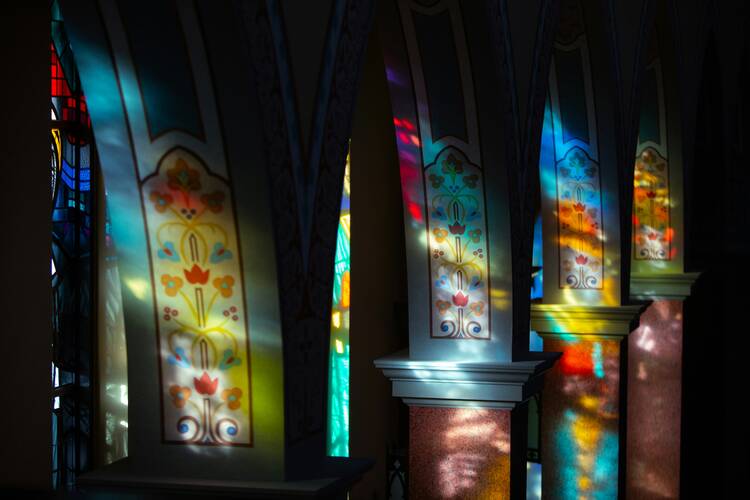A Reflection for Thursday of the Thirteenth Week in Ordinary Time
Find today’s readings here.
“Courage, child, your sins are forgiven.” (Mt 9:2)
I went through confirmation as a senior in high school. After our group’s weekend retreat in the mountains, I drove to a nearby coffee shop in search of some liquid inspiration to get me through the Sunday evening Mass. The privately owned coffee shop had just opened, and when I arrived the owner was the only one there.
I asked for a four-shot iced latte, which I had never ordered in my life. The owner explained that, with four shots, I was leaving little room for milk. But I went ahead with my order anyway.
One way or another, the retreat came up in our conversation. I shared something about it, though I don’t remember what exactly.
“You know Jesus never claims to be God in the Gospels?” the owner said to me.
“Really?” I said, taking a sip from my bitter drink. “Are you sure?”
He said he was. “Look, I’m not saying Jesus is or isn’t God,” he said. “I’m just saying he doesn’t say he’s God in the Bible.”
I ran through what little I could remember from the New Testament, and I couldn’t think of any examples to counter. And in a way, the owner was right. Jesus never says the words “I am God.”
These kinds of conversations just don’t happen to me very often, and certainly not with strangers. Thirty years later, I can think of possible responses. I could have, for example, referred to Jesus calming the storm. Or I could have mentioned how, in the Gospel of John, Jesus says that he and the Father are one, and “before Abraham was born, I am!”
And I could have brought up today’s Gospel.
“Courage, child, your sins are forgiven,” Jesus says to the paralytic. Who has the power to forgive sins? In the reading it’s clear: only God. That’s why the scribes accused Jesus of blasphemy. Jesus then demonstrates his authority to forgive sins by healing the paralytic. “Rise and walk.”
I don’t actually remember what I said to the coffee shop owner that day. But maybe instead of citing Scripture, I could have just said, “Huh. That’s interesting. But what would it mean if Jesus was God?”
The power of the Gospel narratives force questions. What sins do I need forgiven? Have I looked down on others, as some looked down on the paralytic? Who do I need to forgive? Who among us, especially those living on the margins, can I help?
And on a larger scale, what would a nation founded on Christian principles look like? Can nations, especially those who have exploited others, seek forgiveness? How can nations best embody the peace and mercy of Christ?








